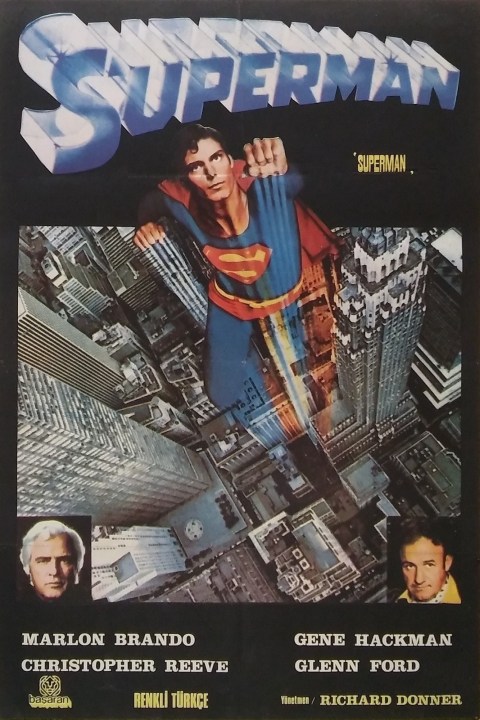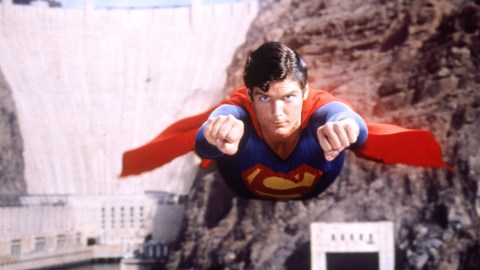17. 4. – 19. 4. 2026
Superman

 Original title: Superman
Original title: SupermanDirector: Richard Donner
Production: 1978, UK / USA
Length: 143 min.
Screened:
KRRR! 2010: 70mm 2.2:1, Colours faded, MG, Spoken language: English, Subtitles: CzechKRRR! 2021: 70mm 2.2:1, Colours faded, MG Dolby, Spoken language: English, Subtitles: Czech
Annotation for KRRR! 2010
The comic book hero Superman lost one of his characteristic features in the famous 1978 film version: seriality. He regained it relatively soon, although, with the exception of the second part and perhaps the recent reimagining, the positive aspects of this phenomenon are at least debatable. However, the loss of seriality was an absolutely essential limitation, because the film had to create one coherent story with a clearly identifiable plot arc from the endlessly reproducible myth of the superman – or alien, as you like. This was so that the film about a flying guy in elastics and a red “cape” could be sold effectively.
The film had the tempting theme of Superman’s birth at its disposal. How does the young Kal El, originally from the planet Krypton, grow up on Earth into the dashing hero Clark Kent, to whom sunlight gives superpowers of all kinds: strength, sight, hearing, speed, gravity denial, et cetera. For morally superior reasons, however, he must become a defender of justice, and in order to be “unrecognizable” among people, he creates an alter ego of Clark Kent as an impractical bum, a journalist at the Daily Planet in the city of Metropolis. There he meets the beautiful journalist Lois Lane, with whom he falls in love, but she only has eyes for Superman (at the same time, she is so blind that a heel and glasses are enough to make her think of two people).
But once Superman grows up and accepts the superhero identity of a defender of justice, he needs to put an adequate enemy in his way – and that is always a bit of a problem with an omnipotent person. The film used the figure of the brilliant psychopath Lex Luthor and, of course, an adequate means that cannot be used indefinitely, but for the first time it can be used: kryptonite. It takes Superman’s strength away… And what about it now? I am mainly concerned with the plot because, if the film series was to continue, it would have been a bit of a pain in the ass to apply all the attractive elements of the comic book, because it couldn't pull them out again (and the second part still managed to do that quite well).
There are various types of openly developed conflicts in the film, which move the plot forward in different parts. First, a contradiction in the world order is suggested - Kal El's abilities must be accepted as a natural part of the laws of physics. Then there is a personal conflict - love (Lois) x duty (superheroism). And finally, there are clashes in the legal order (the villain Luther) and the disruption of existing norms (the loss of Kal El's abilities). Moreover, the film does not make the mistake of openly demolishing itself, despite the naivety of the original subject (Superman is really not one of the most complicated comic book works).
Despite the absurdity of the given world order (starting with the very fact that everyone takes Kent/Superman as two people and no one even thinks of doubting it), everything is presented with a seemingly self-evident seriousness and full tragedy of the individual conflicts. At first glance, because at a second glance, of course, the film is obviously self-ironic. It does not ironize its story, but amusingly comments on the order that prevails in it and must be observed ("No, thank you, I never drink before flying."). And so everything that is shown as possible in it, simply and simply is possible... and it simply does not matter if you are against it. Moreover, the film ruled with excellent tricks for its time (especially in the levitation scenes) and Christopher Reeve, despite certain "talent limitations", managed to play his essentially unplayable character with admirable grace. And who could forget the famous musical theme by John Williams from a time when he wasn't one of the best in Hollywood, but he was simply the best. So, hop on, let's fly.